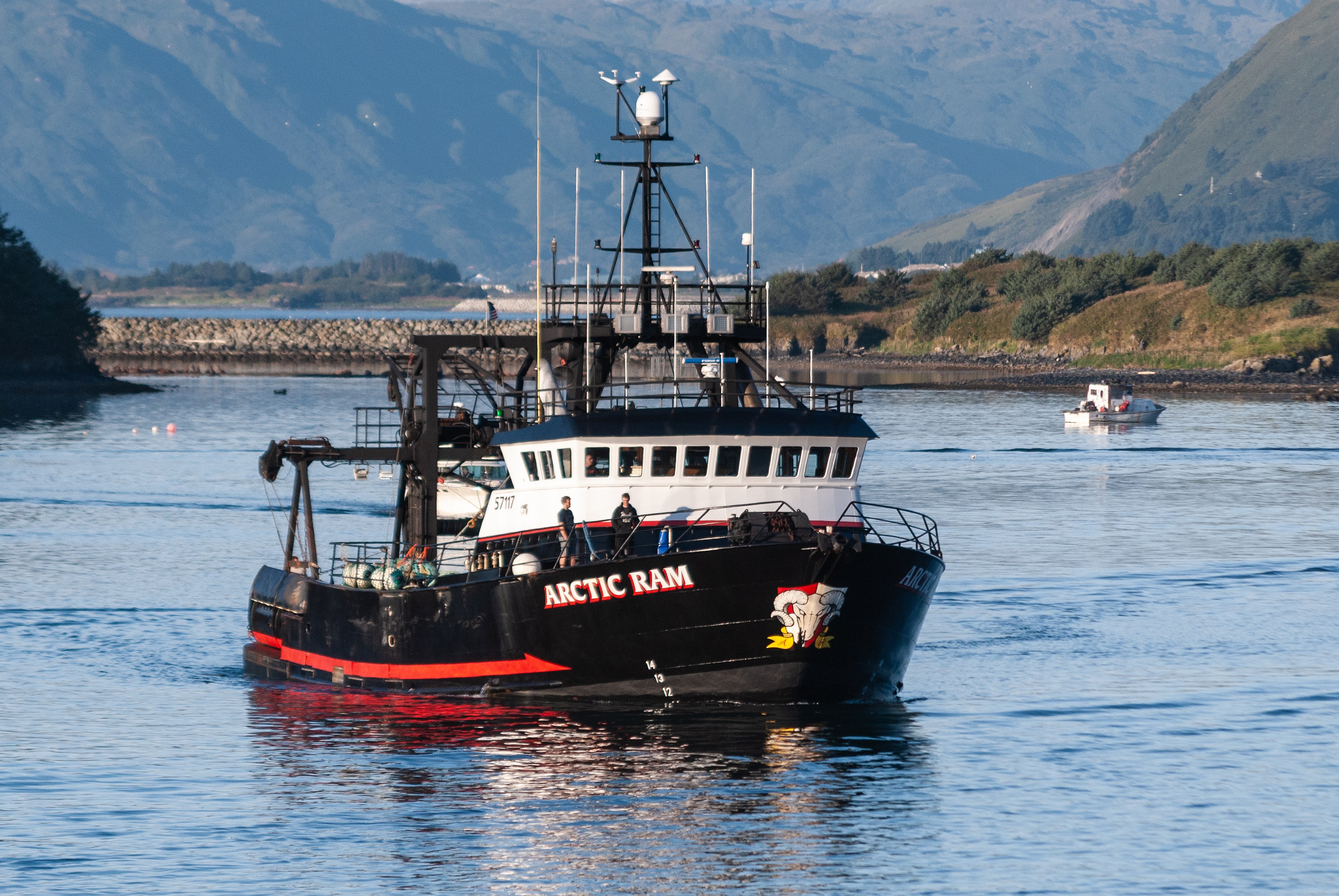Alaska’s seafood industry continues to suffer from the US-China trade war
And it wasn't included in last month's $16 billion agricultural bailout package.

The Alaska seafood industry is not buying U.S. President Donald Trump’s cavalier claim that “trade wars are good, and easy to win.”
Caught in the conflict between the U.S. and China, the fishing fleet is seeing lower prices for its catch and lower demand as China looks elsewhere for its seafood supplies.
The conflict is intensifying, with Trump promising more tariffs on Chinese imports, while Beijing retaliates with every shot from the U.S.
With neither side backing down, Alaska leaders in Congress argued that Alaska fishermen deserved a part of the $16 billion federal subsidy for agricultural victims of the trade war.
But Sens. Lisa Murkowski and Dan Sullivan and Rep. Don Young couldn’t see their way to tell the full story about the role of Trump in starting the foolish trade war that has already damaged the Alaska seafood industry and threatens to do a great deal more harm.
For years, China had been a reliable international buyer of Alaska seafood.
Before the Trump trade war, it bought nearly $1 billion from Alaska. The loss in the first half of 2019 is about $100 million, the Alaska Seafood Marketing Institute estimates, a number that is expected to climb.
The fishing industry was missing from the $16 billion agricultural bailout package announced in late July.
The Alaska Seafood Marketing Institute did receive $2 million to search for new export markets, but that will be tough.
China is cutting tariffs on products from other nations, trying to find replacements, which means a loss of market share for U.S. exporters.
The back-and-forth pattern was entirely predictable.
The tariffs from China are a “carefully calibrated response,” according to the Peterson Institute for International Economics.
“Take farm and fish products. China has increased the duties facing U.S. exporters from an average of 21% to 42%. But it has lowered the average tariff on everyone else to 19%. With the exception of autos, aircraft and pharmaceuticals, there is now a sizable difference between the tariffs facing U.S. exporters and those facing exporters elsewhere,” the institute states.
China reduced the duty paid by Japanese salmon exporters by 3 percent to replace fish from the U.S.
Don’t look for anything approaching a candid explanation from Murkowski, Sullivan and Young about the damage from the Trump “easy to win” trade war.
Sullivan, who is running for re-election in 2020, never criticizes Trump. Murkowski and Young have broken the Republican vow of silence on occasion. Not this time.
The timid trio would have us believe that Alaska’s fishing industry is a victim of what they call “unjustified retaliatory retaliation.” The Trump trade war is not Trump’s fault, the three say. It’s all China’s fault.
Murkowski, Sullivan and Young probably know this is a two-way transaction. But if they told the harsh truth, Trump would be less inclined to respond in a productive manner.
In May, the U.S. announced plans to put a 25 percent tariff on Alaska fish shipped to China that is then reprocessed and shipped to the U.S.
“This unanticipated whiplash is creating tremendous uncertainty for our seafood industry in the months ahead, as they attempt to negotiate sales and contracts with the sudden looming threat of new, unforeseen duties on their products,” Sullivan, Murkowski and Young wrote in May.
“Specifically, the delegation requested the USTR (U.S. trade representative) remove salmon, Pacific cod, flatfish and rockfish from the tariff lists. In addition, they called for the inclusion of Alaska pollock imports from China because the name is a misnomer. Most of that pollock actually comes from Russia and should be subject to the 25% levy,” SeafoodSource.com reported.
Last year the delegation declared it a victory that the U.S. had not put a tariff on the reprocessed Alaska fish.
Meanwhile, China was unjustified in putting tariffs on products in response to Trump’s tariffs on Chinese goods, according to the Alaska delegation. According to their logic, China should have done nothing in response to Trump.
Neither side is backing down in this trade war. It’s not good and it’s not easy to win.
Dermot Cole can be reached at de*********@gm***.com.